Bhutanese-Nepali community celebrates literature as a way to preserve culture
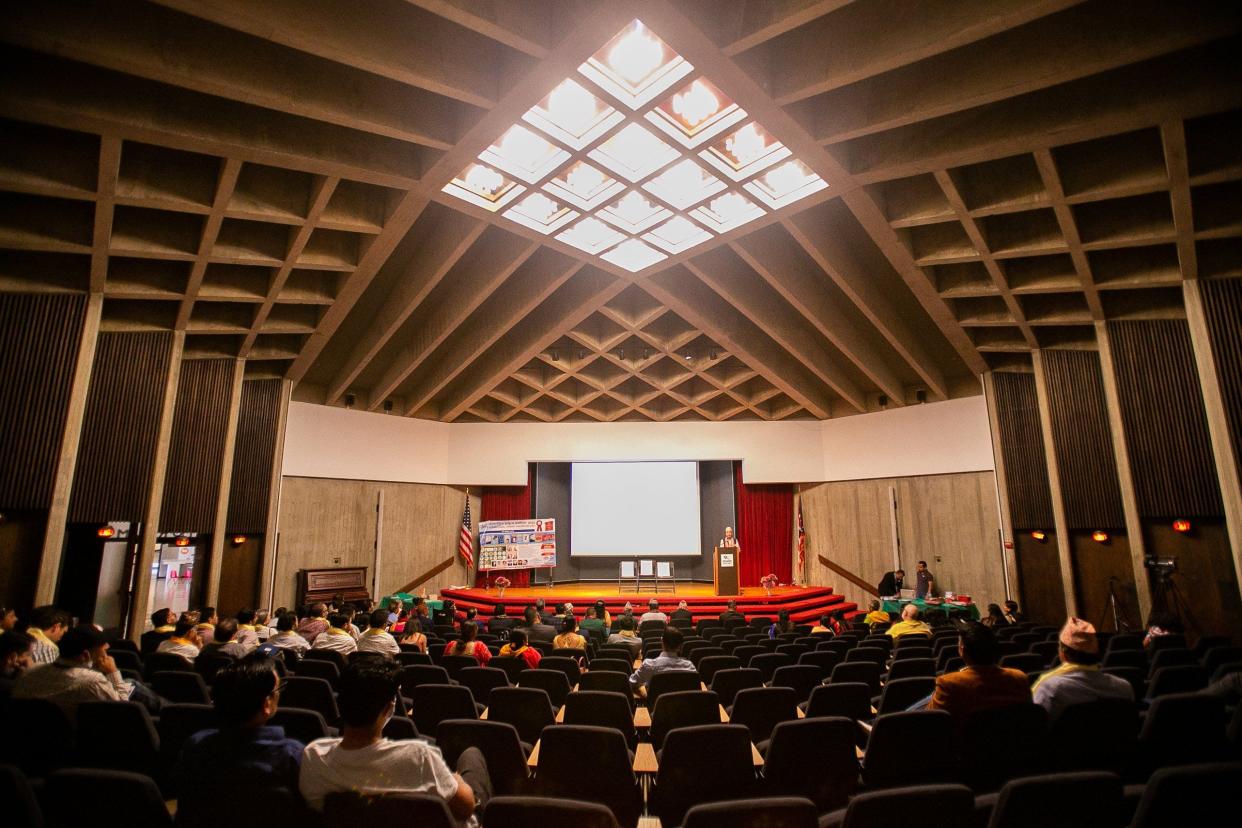
Lila Pradhan sat recently at the entrance to the auditorium at the Ohio History Center, welcoming guests to the third International Bhutanese Literary Convention.
Nearby, a millennia-old mastodon skeleton towered over Pradhan, while a replica Lustron home — a prefabricated house mass-produced in Columbus during the 1940s — beckoned visitors.
Pradhan, 50, of Solon City, Ohio, had come to celebrate a more recent epoch of the state’s history, though — the cultural contributions of the Bhutanese-Nepali community, who began arriving here as refugees 15 years ago. Pradhan is a poet and member of the Literature Council of Bhutan who goes by the pen name Lila Nisha.
Several hundred people attended the two-day convention on Saturday and Sunday. It featured Bhutanese-Nepali writers from across Ohio as well as special guests from Minnesota, Pennsylvania, Texas, North Carolina, Canada, Norway and Nepal.
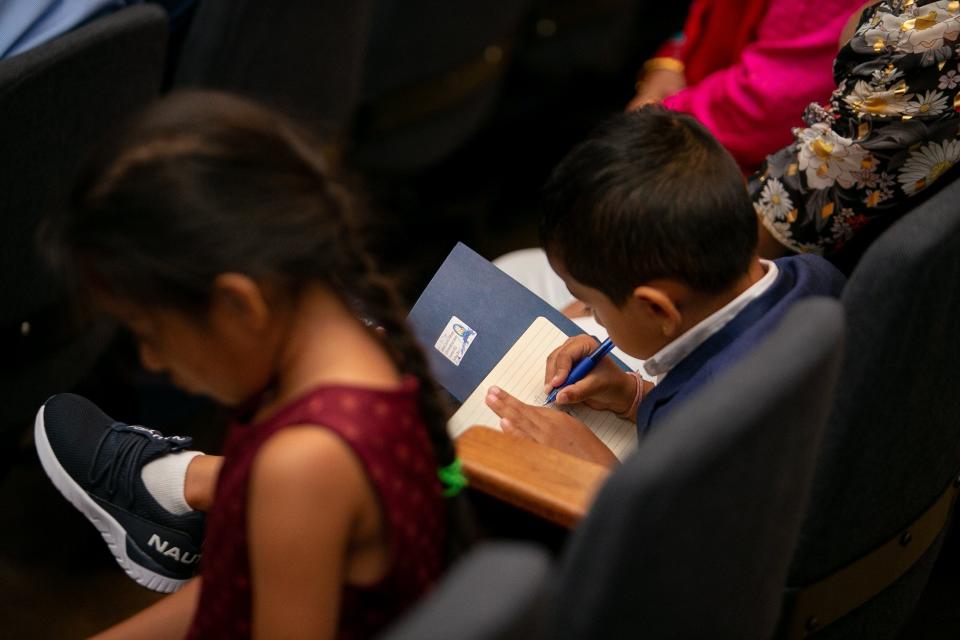
Members of the diaspora reunited at the convention and celebrated their literature as an outlet for creative expression, a tool for advocacy and a means of cultural preservation.
“If we are going to continue to exist, not just as Americans, but as Bhutanese-Nepali-Americans, we need to preserve our customs and language,” Pradhan said in Nepali. “We have to pass these down to the next generation.”
The Greater Columbus area is home to around 30,000 Bhutanese-Nepalis, according to the nonprofit Bhutanese Community of Central Ohio.
After the Bhutanese government drove them from their homes in the early 1990s because of their different ethnic identity, the Nepali-speaking minority languished in refugee camps in Nepal for nearly two decades. From 2007 to 2016, the United Nations facilitated Bhutanese-Nepalis’ resettlement in the U.S. and other countries. Altogether, the U.S. has accepted more than 90,000 Bhutanese-Nepali refugees.
Writers from the diaspora have been prolific. The council released 11 new books of Bhutanese poetry, personal history and fiction in the Nepali language this year, in addition to one musical album by the Reynoldsburg-based artist Dil Khadka.
Ramesh Gautam, 37, a poet who lives in Norway, attributed Bhutanese-Nepalis’ artistic fecundity to their desire to educate the world about their community’s plight.
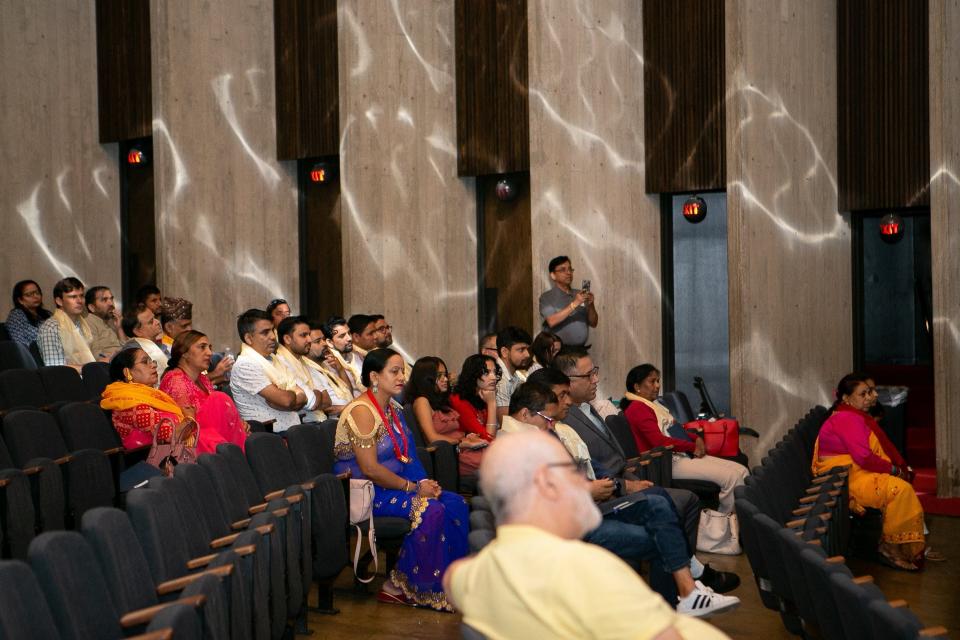
“Most people in the West don’t know about Bhutan since it’s a small, isolated country. If they know something, they might have heard about its measure of ‘Gross National Happiness’ (an alternative to Gross National Product). But they should also know that Bhutan rendered one-sixth of their population homeless,” he said in Nepali.
Before the Bhutanese government drove out the Bhutanese-Nepali community, it banned their traditional clothing in public and stopped teaching Nepali language in schools in favor of the national language, Dzongkha. This linguistic suppression in Bhutan contributed to the literary blossoming abroad, according to Gautam.
As the crowd assembled in the auditorium, guest Narad Pokharel, from Harrisburg, Pennsylvania, read the following lines of his poetry:
Hamilai lageko thiyo, desh bhaneko bhawana ho
Haami tai bhawana bokera purkako desh Nepal ghumyo
Tara desh bhawana haina
Kagaaj bhaiseko rahechha.
It translates as: "We thought that one’s country was a feeling, an emotion. We carried that emotion with us when we went to Nepal. But one’s country is not a feeling. It has been reduced to a document.”
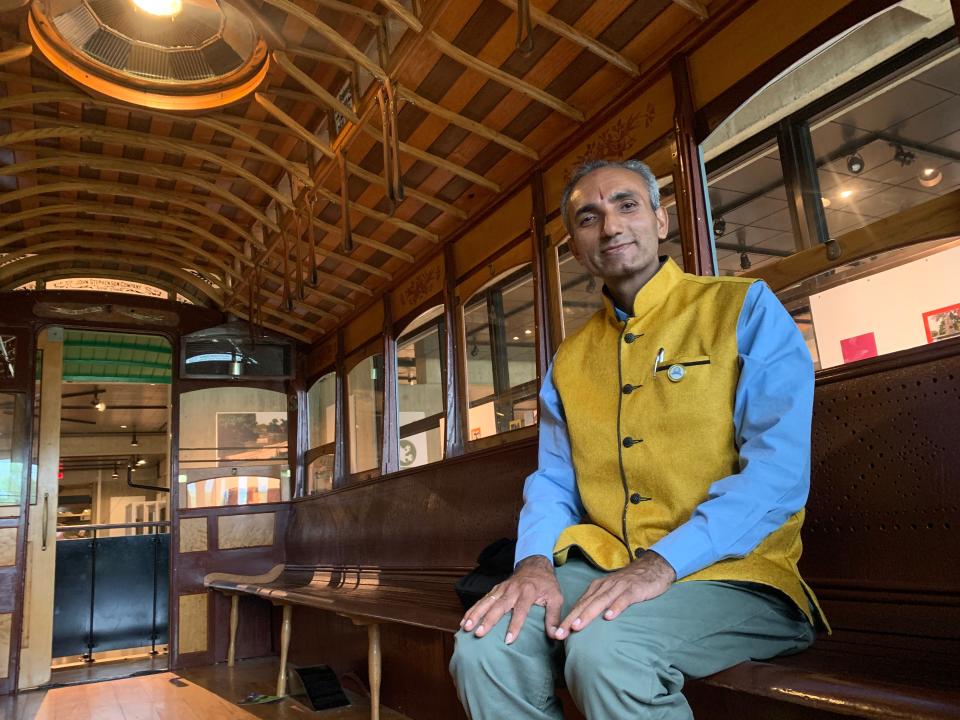
Most of the writers who attended have day jobs. Gautam teaches high school mathematics, and Pradhan works at a furniture distribution center. A memoirist in attendance, Laxminarayan Dhakal, said he is a yoga instructor and a Walmart cashier in Louisville, Kentucky.
The Literature Council of Bhutan was founded in the refugee camps in Nepal in 1993, and has been a source of continuity amidst great changes since then as the community spread across the globe during resettlement. The council held previous conventions in Pittsburgh in 2016 and in Cincinnati in 2018, according to its Columbus-based president, Ganga Lamitare.
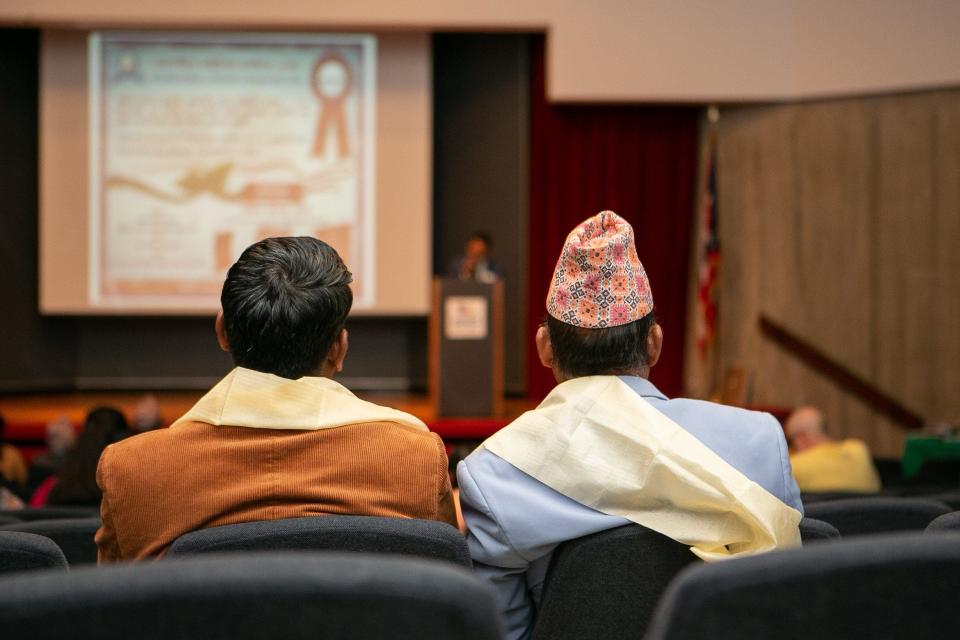
This year’s chief guest, Govinda Raj Bhattarai, is a professor of literature at Nepal’s Tribhuvan University. His keynote speech addressed the tensions and anxieties inherent in transnationalism.
“People are flying around the skies, using new technologies, connecting to new freedoms, learning new languages. They lose something from their own cultures, but they also maintain and gain some things. This is how the world works,” Bhattarai said in Nepali. Bhattarai's 1974 novel "Mugalan" explored the ethnic-Nepali diaspora in South Asia.
Pradhan said she hopes that Bhutanese-Nepali literature will inspire the next generation to continue to speak and write in their ancestral language. For those living in America who feel unable to fully express themselves in English, writing in Nepali is also a mental-health necessity, she said.
“If you can’t express yourself, and you keep all your words pent up inside, you get depressed,” she said. “That’s why we write and publish a lot.”
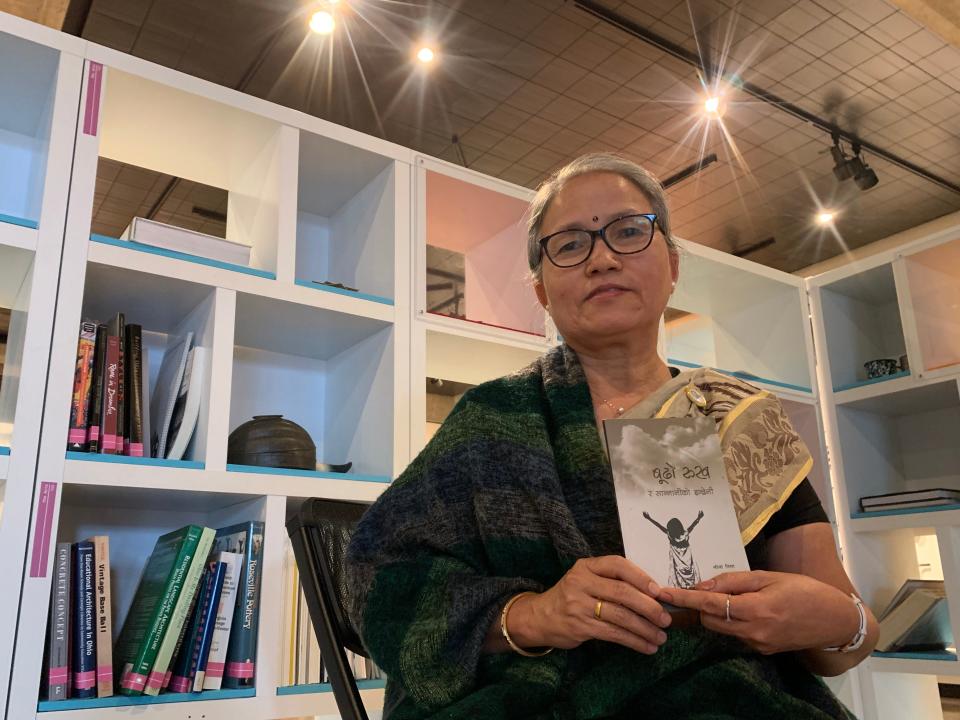
Peter Gill is a Report for America corps member and covers immigration issues for the Dispatch. Your donation to match our RFA grant helps keep him writing stories like this one. Please consider making a tax-deductible donation at https://bit.ly/3fNsGaZ.
pgill@dispatch.com
@pitaarji
This article originally appeared on The Columbus Dispatch: Bhutanese-Nepali community uses literature as way to preserve culture

